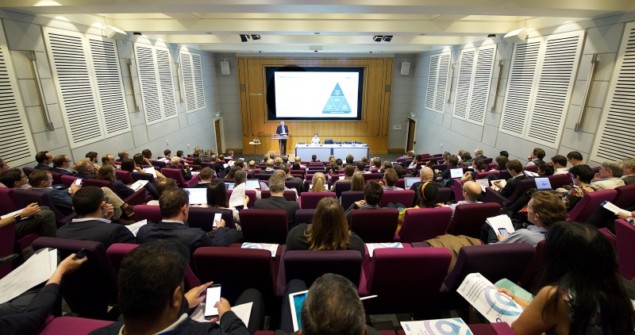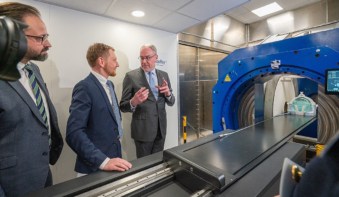
Over 100 radiologists, clinical oncologists, computer scientists, industry experts and funders came together last week for a pioneering stakeholder summit to discuss the challenges of developing artificial intelligence (AI) in imaging and cancer treatment.
The event, “Grand challenges in artificial intelligence in clinical radiology and clinical oncology”, took place at The Wellcome Collection in London on 16 May. The brainchild of Nicola Strickland, President of The Royal College of Radiologists, the summit was organised in partnership with The Alan Turing Institute, Health Data Research UK (HDR UK) and the Engineering and Physical Sciences Research Council.
The packed programme featured a keynote speech from renowned surgeon Lord Ara Darzi, who called on delegates to urgently collaborate to progress AI in clinical practice, both for the benefit of patients and to maintain the UK as a world leader in innovation after leaving the EU.
HDR UK’s Andrew Morris outlined the potential for national data sharing to realise benefits for patients and improve AI training, stressing the timeliness of the meeting given the UK government’s preparations to fund AI initiatives into general diagnostics and cancer detection.
Recurring themes revolved around how academics, funders and technology companies could and should collaborate to accelerate AI, as well as the ongoing challenge of sourcing large, robust sets of data to train algorithms and machine learning programmes.
Delegates were also introduced to an array of developing projects from universities and industry, including AI algorithms and machine learning that detects lung cancer nodules, models pulmonary hypertension and helps oncologists outline tumours ahead of radiotherapy.
“Our key stakeholder meeting demonstrated that the UK has a real opportunity to take the lead on artificial intelligence programmes in healthcare, if clinicians and researchers are brave enough to embrace its potential and work with industry to shape the application of machine learning in practice,” said Strickland.
“For clinical radiologists and oncologists to survive and thrive in the swelling digital revolution, it is vital these medical specialities work in collaboration with funders, AI experts and industry to develop AI that is robustly tested and regulated so it can be confidently put into practice to augment the work of clinicians and bring greater benefit to patients.”



